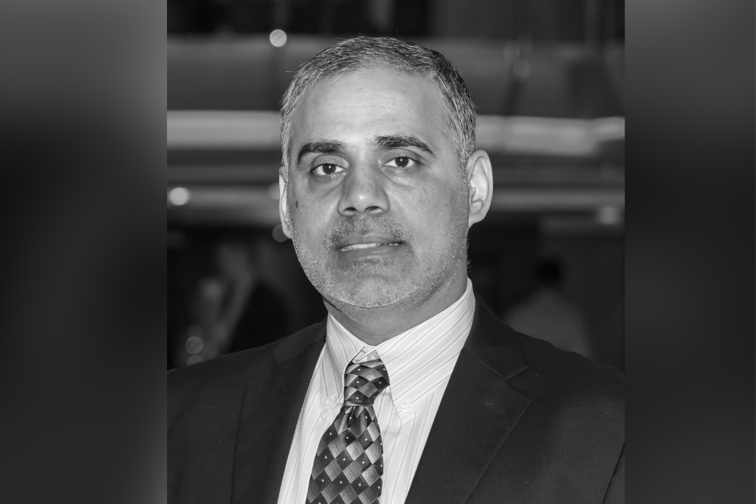

For insurers looking to transform their operations with technology, the most important ingredient isn’t even technology at all, argued Sudheendra Galgali (pictured), head of innovation & digitization at American Modern Insurance Group.
Data matters far more, he said.
“Data is the underpinning of how effective any technology can be,” Galgali said. “We are using data for understanding of the customer, for understanding of what the customer really wants, and delivering the experiences, i.e. what the customer is expecting.”
Galgali, who is also a vice president at the Munich Re US P/C subsidiary, has held his current role since August 2017. He joined American Modern in December 2014 as the technical program lead on the company’s business transformation program.
That change has been quite successful, he said, which involved, in part, the implementation of Guidewire’s primary platform and technology to replace old legacy systems and processes. The company’s organization itself was in need of a serious revamp, he said.
“If there is one success factor it would be that,” he said. “It was a $100 million-plus implementation of the whole platform, but it also involved a successful conversion of over 1.2 million policies and our customers on to the new platform.”
The conversion wasn’t just data migration, but also a non-renewal of policies in the old entity as they were converted over, he said.
American Modern had as many as five different technology systems running its entire business before the modernization, with that number now down to one. More than 50 product variations have been consolidated to 11 for personal lines, business cover and so on and American Modern also consolidated what was nine different legal entities from various states into a single one.
“I would say we have almost set up a brand new insurance company within American Modern,” Galgali said.
American Modern chose Guidewire for a wide range of services, including its policy, billing and claims center, data and information products. It also helped establish customer-facing digital technologies designed to boost customer self-service, among other advances.
Galgali has also enjoyed some successes in his current role, which focuses on driving innovation and digital strategies.
“In my current role … I would say it is [about] the whole culture of innovation and bringing in new technologies into the value chain, delivering to our customers,” Galgali said.
Using Guidewire’s platform has allowed American Modern to leapfrog into some cutting-edge technologies.
“They have data in a standardized way, which allows them to overlay AI and machine learning and informatics [products and services] on top of that,” he said. “Their data solutions are something that we adopted.”
Galgali explains he has been a technologist for much of his professional life, drawn to the field for elemental reasons.
“It solves problems in efficient ways that we’ve never seen before or were never even contemplated before,” he said.
An example of this was how the industry handled claims five years ago, where the industry would not have even considered using aerial imagery and being able to avoid in-person inspections for underwriting.
“Technology brings in new ways to do things that we wouldn’t have even thought about and makes it efficient and transforms things,” he said. “Technology is the underpinning, a core thread of how we’re going to do business going forward, and everything in our lives. That’s what excites me about technology, the fact that it can do things that were never contemplated before.”
With that in mind, American Modern has invested in its use of data to maximize the technology it now has.
American Modern and parent Munich Re invest heavily in their data assets and building up their data infrastructure, he said.
“It’s the governance aspect of data …. Understanding how you can get clean data and how we can pass it through the system [and] how we put analytics on it, because AI and machine learning will not work if you don’t have the right data underneath,” Galgali said.
Asked if the insurance industry was finally keeping up with the rapid advance of technology it can use and benefit from, Galgali said that it is, despite being a late arrival to the party.
Insurers dove deeper into technology with the emergence of modern insurtechs around 2015, he said, one of the last industries to turn to technology for business transformations.
“They had to play catch up and they have significantly advanced,” he said. “The incumbents obviously have realized that they are going to have to be part of the solution. They cannot be sitting out there and ignore it, and those who are going to jump on the bandwagon are going to embrace it with both arms open.”
Still, Galgali observed, many companies are still resisting a full embrace of technology.
“Companies are not ignoring technology, but they are ignoring the pace with which it is changing and transforming things,” Galgali said.
He asserts that companies are still apprehensive about widespread technological change and choose instead to sit on the side and let things evolve. Galgali advocates the opposite approach.
“We have to get up front. We have to learn about it, even if things fail. Failure is success because it teaches us things,” Galgali said.
He noted American Modern began its technology transformation relatively early even though executives were uncertain about some choices to make.
“We got into it. We learned and we went through the paces,” he said. “Some of those folks who are out there are kind of waiting for that perfect moment to adopt. I don’t think there’s going to be a perfect moment…”
